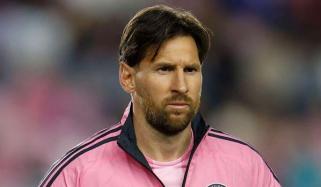
River Seine’s infamous pollution has forced Olympic organisers to cancel the swim training of triathletes on Monday.
As per the BBC, River Seine’s unfavourable ‘water quality’ caused the cancellation of Monday’s training session, the second consecutive day of training to be called off; Sunday’s ‘familiarisation’ session was also cancelled.
In an official statement issued on Monday, Paris 2024 and World Triathlon shared that ’the health of the athletes’ is top priority after claiming that tests had shown that Seine’s water quality was ‘below acceptable standard’.
The statement said: “The tests carried out in the Seine (on Sunday) revealed water quality levels that in the view of the international federation, World Triathlon, did not provide sufficient guarantees to allow the event to be held.”
“This is due to rain that has fallen on Paris on 26 and 27 July. Given the weather forecast for the next 36 hours, Paris 2024 and World Triathlon are confident that water quality will return to below limits before the start of the triathlon competitions on 30 July,” the statement further explained.
According to the BBC, rainfall in Paris leads to untreated sewage flowing into the Seine, further lowering the water quality.
However, as per the statement: “As observed in July, with summer conditions (more sunshine, higher temperatures, prolonged absence of rain) water quality in the Seine has improved significantly. “
The Olympic men’s triathlon is scheduled to start on Tuesday, July 30, however, if the water quality remains unfavourable, two contingency days have also been worked into the programme, August 1 and 2.
If the water quality remains unsuitable on August 1 and 2, the triathlon will then be turned into a duathlon, with the swimming leg cancelled, and athletes participating in only the bike and running legs.















